Nestled along the quiet shoreline of Center Hill Lake, Indian Creek Youth Camp has been a summer haven for generations of families in the town of Liberty, located in rural central Tennessee. With cabins that remain open for winter retreats and nearby permanent residences, the camp maintains its own public water system year-round — a rare setup requiring full surface water treatment from the Caney Fork River.
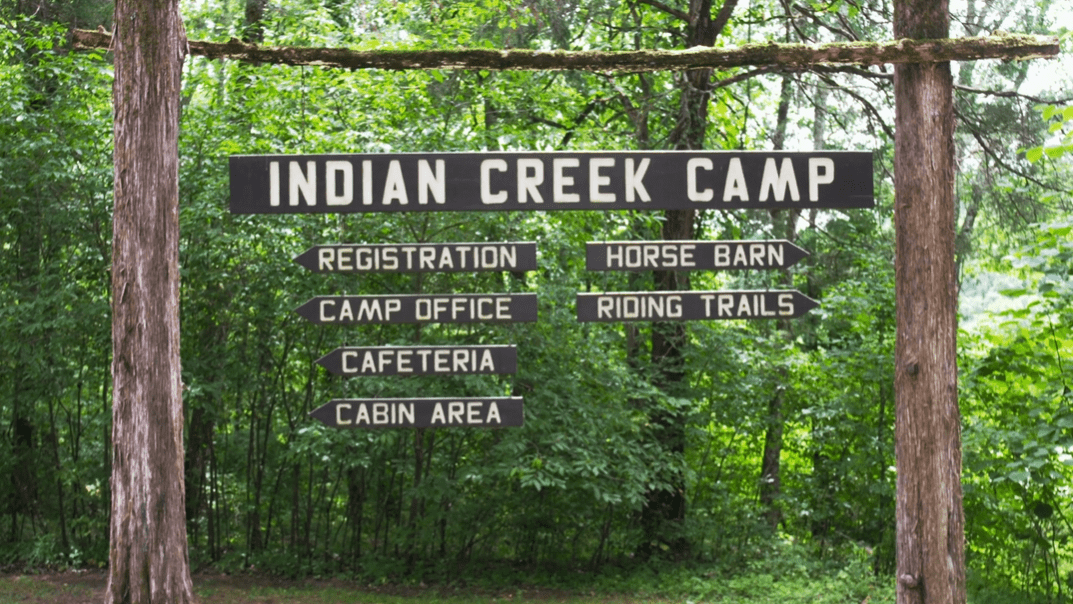
The longtime operator, Herb White, was preparing to retire after more than 30 years. At the same time, the system received a state compliance order citing outdated documentation, inconsistent sampling, and failure to meet critical testing requirements under the Long-Term 2 Enhanced Surface Water Treatment Rule and the Revised Total Coliform Rule. The Standard Operating Procedures (SOPs) were written on a whiteboard. Sampling plans and source water assessments were incomplete or missing altogether. The system had fallen out of compliance — and the camp had no certified operator to take over.
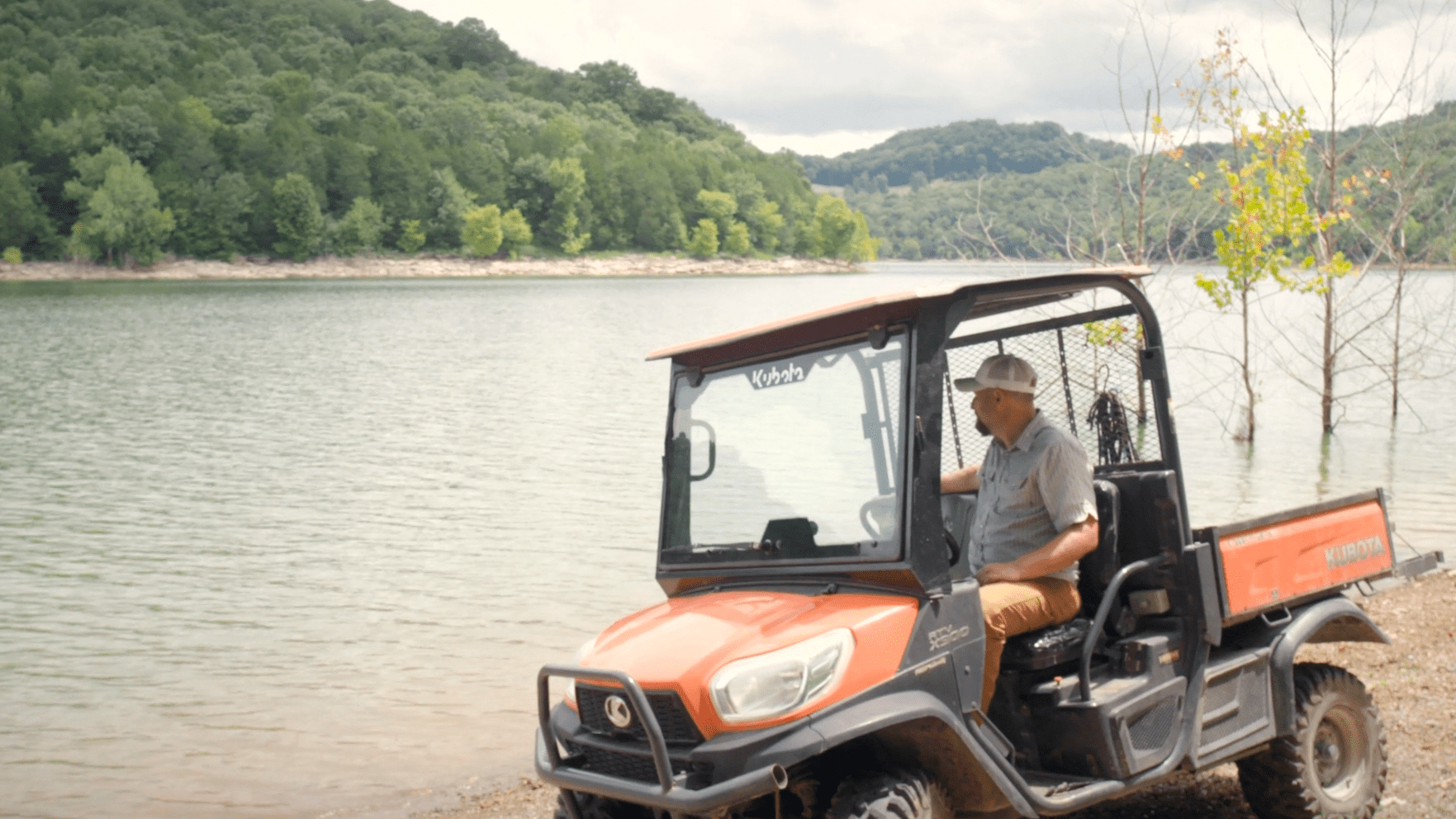
“It wasn’t something I planned,” Ben said. “But I understood how important it was. No water, no camp.”
Ben had known Indian Creek since childhood. As a teen, he’d worked alongside Herb doing camp maintenance and even helping with the horses. With experience in construction and facilities, he was a natural fit to take over — except for one thing: he wasn’t yet a licensed operator.
Ben began shadowing Herb, who stayed on under his license while Ben prepared for the state exam. But the journey wasn’t simple. The COVID-19 pandemic delayed the test, and when it finally took place, Ben failed his first attempt.
“The test was very hard,” he said. “Our plant is small and specific, but the license is broad. I had to learn a lot that didn’t apply to our setup — formulas, chemicals, systems we don’t use. But I studied hard and passed it the second time.”
During this critical period, Indian Creek was referred to Communities Unlimited (CU) for help. Ben was skeptical at first.
“Someone offering to help — and not charging for it? I didn’t believe it was real,” he said.
“But I called around to other systems, and they all spoke highly of CU. Once I connected, I realized what a blessing it was.”
Annie Chiodo, CU’s Tennessee State Coordinator for Community Infrastructure, stepped in to help Indian Creek navigate its compliance challenges. She began tutoring Ben, helping him prepare for the exam, and guiding the system through the documentation overhaul.
With Annie’s support, Ben passed the certification exam in late 2020 and officially became the camp’s operator in January 2021.
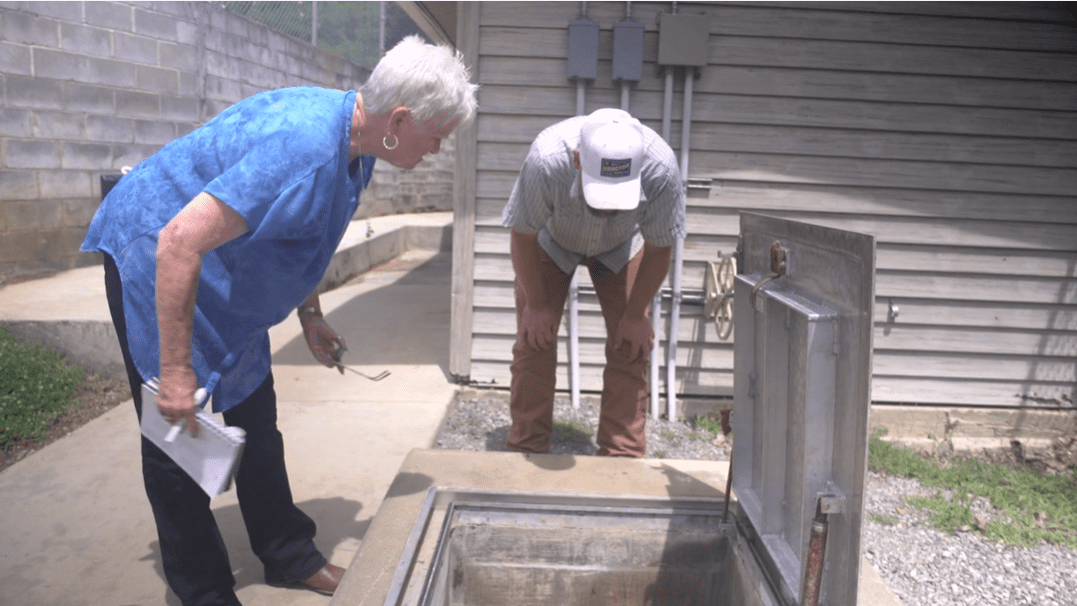
“There was still a lot of work to do,” Ben said. “We had to build everything from the ground up.”
Annie helped Ben develop a Corrective Action Plan, Cross-Connection Control Plan, Emergency Operation Plan, Sampling Plan, Watershed Protection Plan, and Monthly Operating Report (MOR) documentation. She even created a spreadsheet tailored to Tennessee’s reporting requirements, replacing the old handwritten logs with a streamlined digital tool.
As Annie eventually transitioned off the project, CU Technical Assistance Provider (TAP) Brett Capps continued the work. He finalized the EOP, updated the Source Water Protection Plan, and began developing a SOP and detailed schematics for the system layout — a critical asset for long-term planning and emergency readiness.
“Brett’s got my back,” Ben said.
“He helps with everything. I know we’re covered.”
The ongoing relationship with CU has given Ben more than technical support — it’s provided peace of mind.
“Knowing CU is making sure our paperwork is in order and we’re meeting state requirements — that’s a tremendous blessing.”
Under Ben’s leadership, the system has made impressive strides. Indian Creek has earned perfect scores on its last two sanitary surveys from the Tennessee Department of Environment and Conservation (TDEC) — a first for the camp.
But the job hasn’t been easy. Ben has tackled everything from frozen pipes and pump failures to chemical imbalances and hard-to-detect leaks. He’s learned how to spot problems by sound or feel — the kind of instinct that comes only with time and dedication.
“You pick things up day by day. You start to feel the system. You notice when something sounds off — like a new whine or vibration. That’s how you catch problems early.”
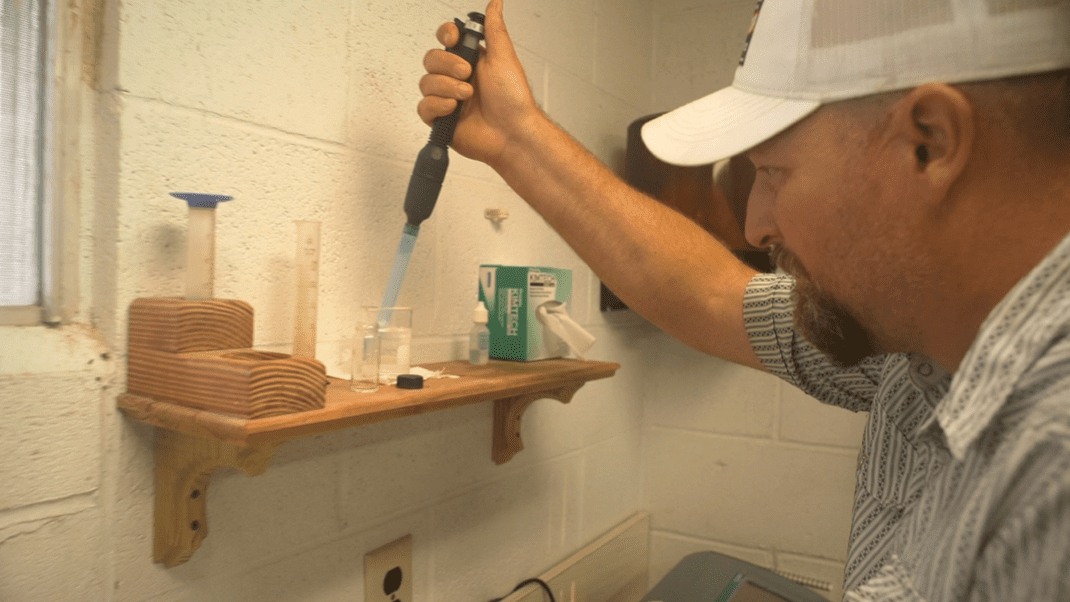
“People don’t see what goes on behind the scenes,” he said. “But this is the lifeline. It’s how we cook, clean, and fight fires. Without it, there’s no camp.”
Ben hopes more people consider water operations as a career. He believes operators are the unsung heroes of rural systems — and wishes the job received more recognition and visibility.
“Get your license as soon as you can,” he advises. “And then really learn your system. Because you’ll be learning every day.”
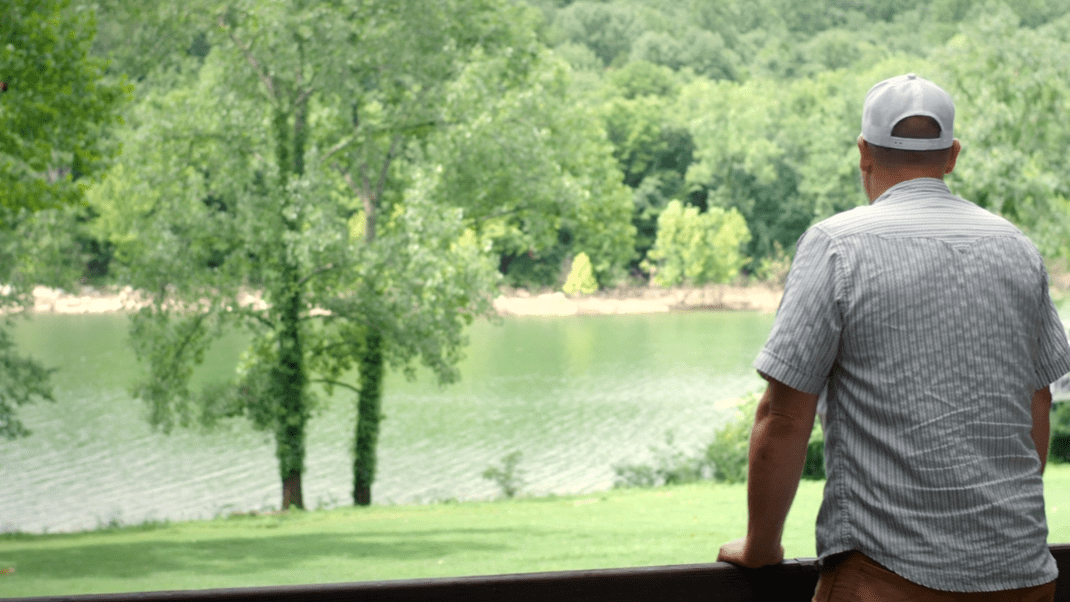
“This is a Christian youth camp,” he said. “And the water system — it’s the engine behind the ministry. Without it, none of the other work happens.”
Looking ahead, Ben is exploring upgrades like additional storage, more automation, and even remote monitoring tools that would allow him to check system data from his phone. He’s also advocating for the camp to invest in training a second operator to ensure continuity.
“That’s less job security for me,” he laughed, “but it’s the smart thing to do.”
For Ben, the job is more than technical — it’s deeply personal.
“It’s awesome to realize that what you do matters,” he said. “And here, it means everything.”

